You ever scroll past a video of someone cuddling a baby tiger or walking a monkey on a leash and think, “Wait… are we allowed to do that?” Turns out, not for long. Across the U.S., states are finally putting their foot down on the exotic pet craze—and not just because someone’s neighbor keeps a boa constrictor in the guest bathroom. Whether it’s pet zebras escaping into traffic or servals casually chilling in someone’s backyard, lawmakers have had enough of suburban safaris gone rogue. And with a new presidency in full swing, the crackdowns are coming fast, fierce, and with a surprising amount of paperwork.
From surprise house inspections to six-month grace periods for “surrender your lemur” campaigns, it’s clear: America’s exotic pet loophole era is closing. So if you were planning to start your own living room zoo—sorry, buddy, your dream of a couch-snuggling capybara might need a permit (or a relocation plan). Let’s take a look at 11 states that are making it way harder to live out your Tiger King fantasy.
1. Florida’s Python Panic and Reptile Roundup
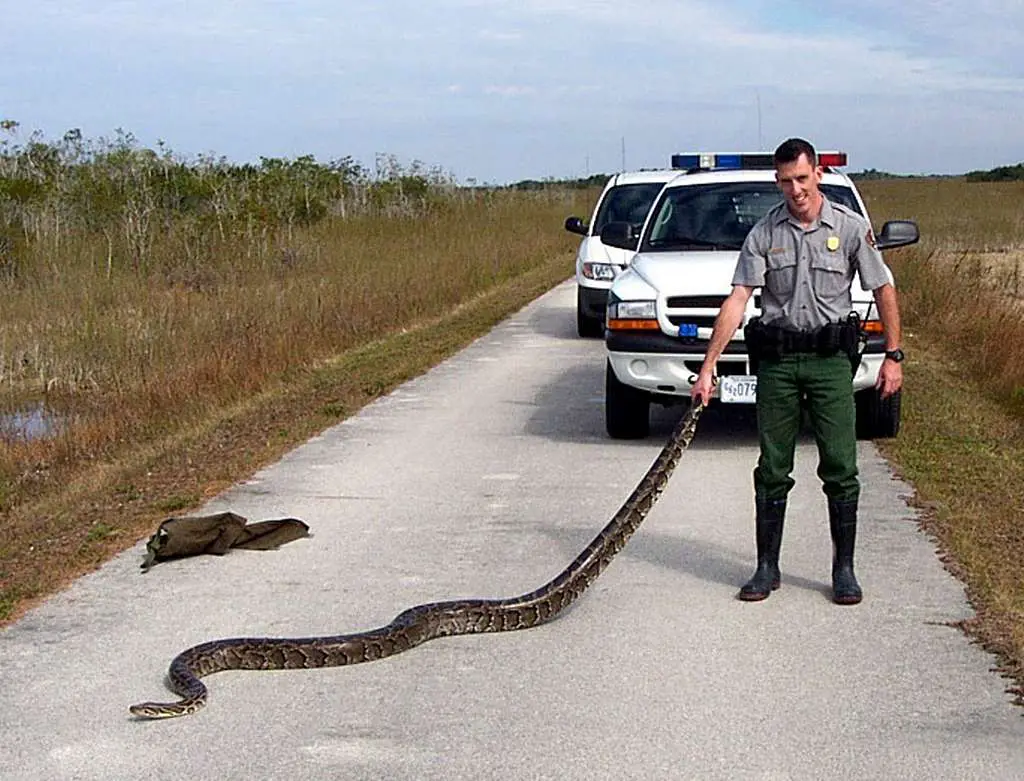
Remember those viral videos of massive pythons slithering through the Everglades? Well, Florida finally said “enough is enough” and banned a laundry list of invasive reptiles in early 2021, including tegus, green iguanas, Nile monitors, and of course, those notorious pythons. Per PHYS.org, the Florida Fish and Wildlife Conservation Commission added these species to its prohibited list because they were literally decimating local ecosystems—think pythons eating raccoons for breakfast and iguanas chowing down on native vegetation. That’s the reason this crackdown made waves: those invasive critters had already established breeding populations and were wreaking havoc on everything from small mammals to endangered birds. Breeders and pet shops had six months to either surrender or find a legal purpose (like research or education) for their now-illicit stock. The rules also barred any new imports or sales, meaning that even if you had dreams of owning a baby anaconda, you’d better shelve those hopes.
Florida’s move was as much about environmental stewardship as it was about public safety—imagine stumbling upon a Komodo dragon in your backyard (yes, that almost happened in 2020). Local vets and wildlife centers saw a surge of surrendered exotics, and shelters scrambled to house everything from tiny tegus to adult Burmese pythons. Conservationists cheered because each surrendered or confiscated reptile meant one fewer potential escaped invader. Of course, some hobbyists complained that it infringed on personal freedom, but when whole bird species vanish because of escaped pet pythons, personal freedom takes a backseat.
2. New York’s New Exotic Animal Licensing Scheme
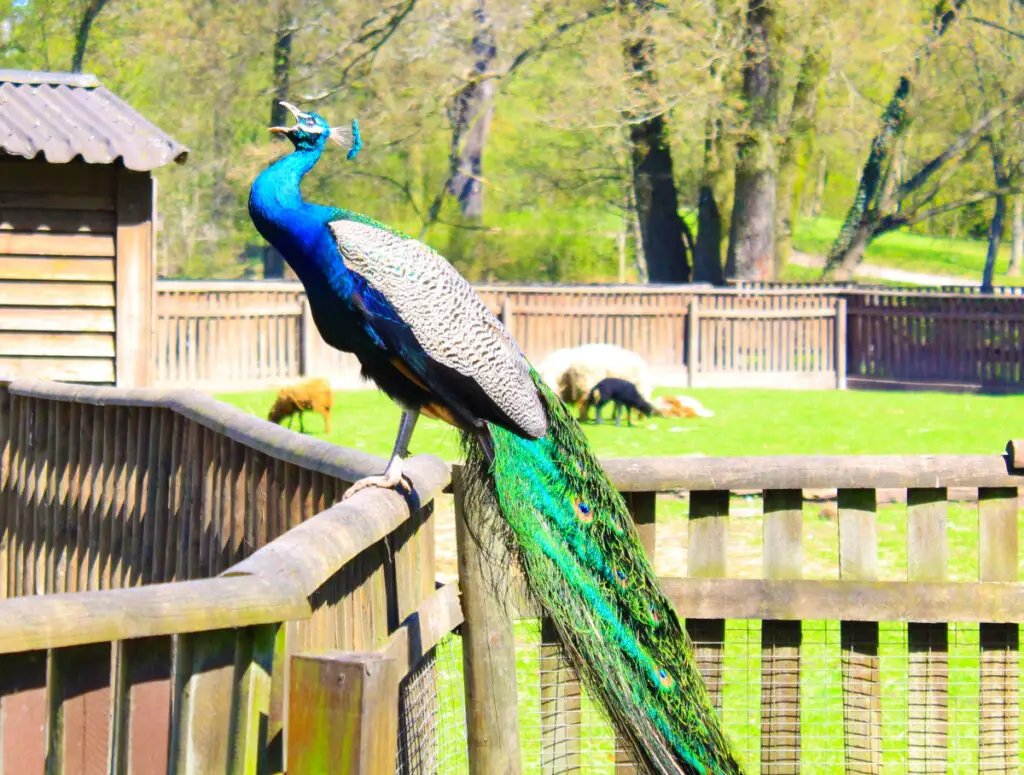
Up in the Empire State, lawmakers got serious in early 2025 by passing Assembly Bill 2025-A1804, which expands the definition of “exotic animal” and bolsters licensing requirements for anyone currently harboring or wanting a peacock, python, or pooch-sized alligator. According to the New York State Assembly, Bill A1804, the bill adds non-native critters—think camels, capybaras, or creepy-crawly tarantulas—to the non-companion animal list, meaning you can’t just stroll into a backyard breeder’s garage and walk out with a baby serval. The reason behind this roundup is crystal clear: a few too many “exotic pet gone wrong” headlines spurred Albany to tighten the reins. Now owners must apply for a restricted-species permit, pay annual fees, and submit to periodic inspections—no more “Oops, I found a hippo in my garage” excuses. If you’ve never even heard of a fossa, that’s fine—you’ll still need this license if you want one on your living room couch.
Violating the new rules can land you a hefty fine or even a misdemeanor charge, which is a world away from the “free-for-all” days of old. Wildlife rehabilitation centers report that this legislation helps cut down on dangerous encounters—like that viral video of a capybara casually strolling through a Bronx neighborhood. Supporters say it also protects public health, pointing out that exotic viruses don’t always come with warning labels. Critics grumble that it’s overkill and will put small-scale, ethical exotic breeders out of business, but in a state where squirrels practically brandish attitude, maybe reigning in capricious capybaras is a good trade-off. Ultimately, New York’s licensing scheme aims to ensure that if you insist on cohabiting with an armadillo or an African puku antelope, you can’t just “wing it” when it comes to proper containment, vet care, or potential dangers.
3. Illinois’ Kangaroo Kerfuffle and Serval Showdown

Picture this: you’re scrolling through Instagram and stumble on a boomerang of a cute kangaroo hopping around someone’s living room. That’s precisely the kind of viral content that spurred Illinois lawmakers to pass a bill on April 18, 2024 banning ownership of kangaroos, servals, wallabies, and other “dangerous animals.” Per The Daily Northwestern, the House vote came after animal control officers reported incidents ranging from escaped kangaroos boxing local cats to servals leaping on front porches. Lawmakers said that social media had glamorized owning exotic pets, fueling a trend where confused consumers bought these high-maintenance animals without realizing they can grow into 30-pound, razor-sharp-clawed fighters.
That’s the reason Illinois decided to draw a firm line: public safety—and, let’s be honest, livestock safety—was at risk when diplodocus-sized macaws and prehensile-tailed marsupials showed up at county fairs. The new law doesn’t leave you in limbo: if you owned a kangaroo or serval before April 18, you’ve got one year to either register it under a new permit category or find it a new home. Expect a thorough vet check, proof of proper housing (no chain-link dog runs masquerading as “exotic pet pens”), and detailed emergency plans. Failure to comply can cost you up to $2,500 per animal or—even worse—lose your exotic pet rights for life. Critics argue this stifles small, ethical breeders, but legislators counter that when your captive elephant ends up on YouTube wrestling with the mailman, intervention is overdue. Animal welfare groups celebrated, saying the bill will reduce abandoned exotic pets ending up in shelters or, worse, released into the wild. After all, nobody wants a rogue wallaby hopping through downtown Chicago during rush hour. With this move, Illinois joined the ranks of states saying, “Look, we love biodiversity, but let’s not recreate Jurassic Park in Peoria.”
4. California’s Permitting Push with AB 892

When you think California, you probably think sun-kissed beaches and avocado toast—but now you might also think “exotic pet permit” thanks to Assembly Bill 892, introduced in early 2025. According to the text of AB 892, this bill would ban the public from coming into direct contact with a range of specified wild animals—from bears and caracals to sloths and kangaroos—unless you’ve got a restricted species permit. The reason this matters is that unregulated petting zoos and shady roadside menageries often let folks snuggle sloths or grin next to a caged big cat cub, which sounds cute until one of those cubs whips out its claws. Under AB 892, any “covered animal” kept in captivity would only be handled by the owner or facility staff, not some random TikToker looking for viral content.
Supporting organizations say this will curb disease transmission risks, citing concerns about zoonotic pathogens jumping from a capybara to a carefree tourist. That’s why the bill also demands annual permit renewals, facility inspections, and proof of proper housing conditions—no more tying up a baby bear with a thin rope for “photo ops.” If you violate AB 892, you might not go to prison, but you will get slapped with civil penalties and a revoked permit—meaning you lose that fancy sugar glider you bought at a weekend expo. Skeptics grumble it’s overkill and will bury small-scale educational sanctuaries under red tape, but proponents argue it’s a small price to pay for public safety and wildlife preservation. So, next time you daydream about owning a two-toed sloth or a ring-tailed lemur, remember: California wants you to fill out that pesky form first. Because in the Golden State, you can still dream big—just don’t expect to post selfies with a skunk without official approval.
5. Texas and the Big Cat Crackdown

Y’all might think Texas is all about gunslingers and two-stepping, but when it comes to big cats, the Lone Star State joined the modern era by enforcing the federal Big Cat Public Safety Act in June 2023. According to Universal Law Group, this act bans private ownership of lions, tigers, leopards, and cheetahs unless you already had a permit and registered by mid-2023—no more “backup house panther” for your mansion. Texans who had felines on their property pre-Act could keep them, but they had to register with U.S. Fish and Wildlife, provide proof of secure enclosures, and adhere to strict veterinary care rules. The reason this matters in Texas is that the state was once dubbed the “Big Cat Mecca,” with hundreds of unregulated backyard breeders—some big cats even ambushed unsuspecting sheriffs during routine checks. N
ow, sheriffs and wildlife officers work together to ensure compliance, complete with surprise inspections and spot checks—imagine a cowboy hat-wearing officer rappelling into a lion enclosure just to make sure the fence isn’t held up by duct tape. Counties that fail to enforce the ban face potential federal repercussions, including loss of wildlife grants or educational funding, so local agencies take it seriously. Critics claim the law punishes responsible exotic rescue sanctuaries, but federal exemptions allow accredited shelters to keep or rehabilitate big cats, so bona fide rescue groups get a pass. As of now, any new private big cat acquisition is off the table—buyers can’t just snap up a cub from an online “exotic pet for sale” ad.
6. Washington’s Wildlife Wake-Up Call

Washington recently hit the brakes on exotic pet ownership after a viral video showed a pet civet raiding a local farm stand, leaving berries and chaos in its wake. The state’s Department of Fish and Wildlife expanded its prohibited species list in 2024 to include primates, civets, and , because apparently nobody wants a midnight raccoon-like critter rummaging through your compost. Legislators argued that exotic pets, even the adorable ones, can carry zoonotic diseases and escape more easily than your forgotten laundry in a fraternity house. Now, any Washington resident hoping to adopt a sloth or sugar glider needs a specialized permit with proof of secure enclosures and veterinary care plans. The reason this crackdown matters is that too many escaped exotics ended up being roadkill on I-5, which is a sad end for a critter you paid big bucks to own.
Wildlife rehabilitation centers reported a spike in surrendered exotics after the new rules took effect, so shelters went from “aww” to “yikes” overnight. Enforcement agents can pop up at private properties unannounced, like that one time a landlord thought a raccoon was a free roommate. States like these hope to prevent exotic pet flash mobs of hedgehogs or monitors turning up in backyard barbecues uninvited. Critics grumble that this punishes responsible hobbyists, but lawmakers counter that it’s better to err on the side of caution than face a viral outbreak. Anyone already owning a listed exotic had until January 2025 to register or rehome their animal, turning living rooms into mini surrender parties. Ultimately, Washington’s new rules underscore that when it comes to exotics, the Pacific Northwest prefers rain and coffee over impromptu safari experiences.
7. Oregon’s “No More Barbie Kangaroos” Bill
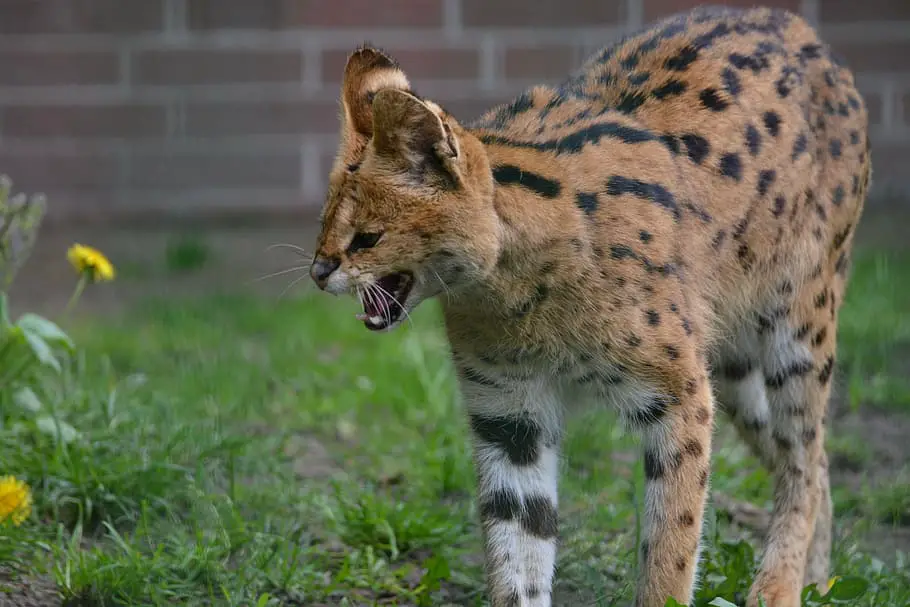
Oregon’s legislature got fed up with viral footage of pet lynxes roaming suburban backyards and passed Senate Bill 2023 banning ownership of felids not in the domestic cat family. Officials point out that even bobcats and , no matter how Instagrammable they are, can’t be trusted around toddlers or free-range chickens. The bill also outlaws venomous snakes and large constrictors, because nobody wants an anaconda squeezing the life out of their dreadlocks. Now, prospective exotic owners must take an online safety course, submit enclosure blueprints, and get sign-off from a licensed wildlife veterinarian. That’s why this crackdown is a big deal: Oregon didn’t want to turn Beaver State into “Sloth Central” just because someone thought a sloth would be a chill roommate.
Conservation groups cheered because tethered pet venomous snakes had become a local health hazard, with too many victims ending up in the ER after a bad handling session. Law enforcement can issue citations and confiscate animals if owners fail to comply, and some backyard-turned-jungle setups were dismantled within days. Pet stores that once sold baby pythons and kinkajous found themselves retyping their business model to sell parakeets and rabbits instead. Critics argued the rules were too restrictive, complaining that they’d gone from “DIY petting zoo” to “zoo police” overnight. But for every disgruntled exotic hobbyist, there’s a wildlife rescue breathing a sigh of relief that fewer exotics will end up abandoned in the woods. In short, Oregon’s new statutes remind us that just because you can buy a capuchin monkey online doesn’t mean you should.
8. Massachusetts’ Science Fair Shocker
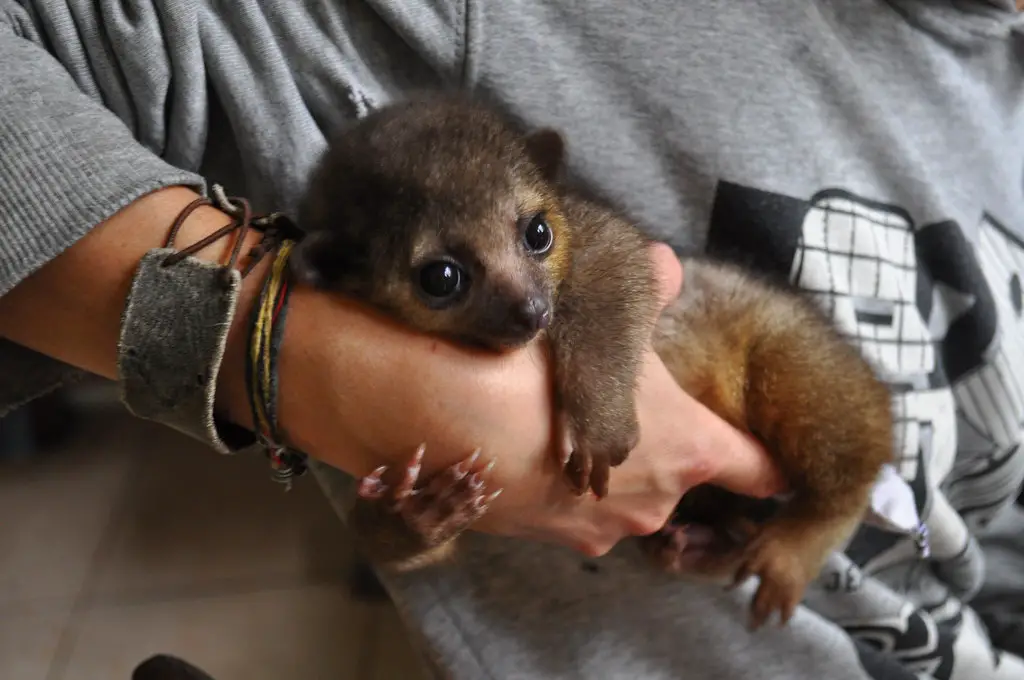
Massachusetts found itself in the headlines when a local high school science fair featured a pet that escaped, causing a full lockdown—thankfully no one was hurt. In response, Beacon Hill lawmakers passed legislation in 2025 outlawing ownership of all non-domestic carnivores and primates, effective immediately. The law requires exotic owners to have a home inspection, DO NOT attempt to hide that pet ocelot in your crawlspace anymore. Residents already owning a prohibited species had a three-month grace period to comply, leading to a flurry of “adopt, rehome, or face fines” memes on social media. The purpose behind this crackdown is straightforward: protect public safety and avoid having venomous or toothy critters in your fancy Boston brownstone.
Animal control officers also gained the right to seize any listed exotic animal if it’s deemed a public risk, which happened to one unfortunate python owner in Cambridge. Breeders and hobbyists scrambled to adjust, shifting their focus to barn cats and domesticated rabbits to keep their wallets intact. Some local sanctuaries reported influxes of surrendered exotic pets, ranging from sugar gliders to marmosets, filling their communal playrooms overnight. Critics grumbled that it was government overreach, but proponents pointed out that when an ocelot jumps on your school principal at 8 AM, government intervention suddenly sounds reasonable. Additionally, the new law funds an education campaign on zoonotic disease risks—because apparently, everyone needs a reminder that raccoon roundworm is not a cute pet accessory. All in all, Massachusetts is saying that if your idea of a fun weekend involves wrestling a wild cat in your living room, you might want to reconsider.
9. Michigan’s “No Bobcats on Porches” Policy
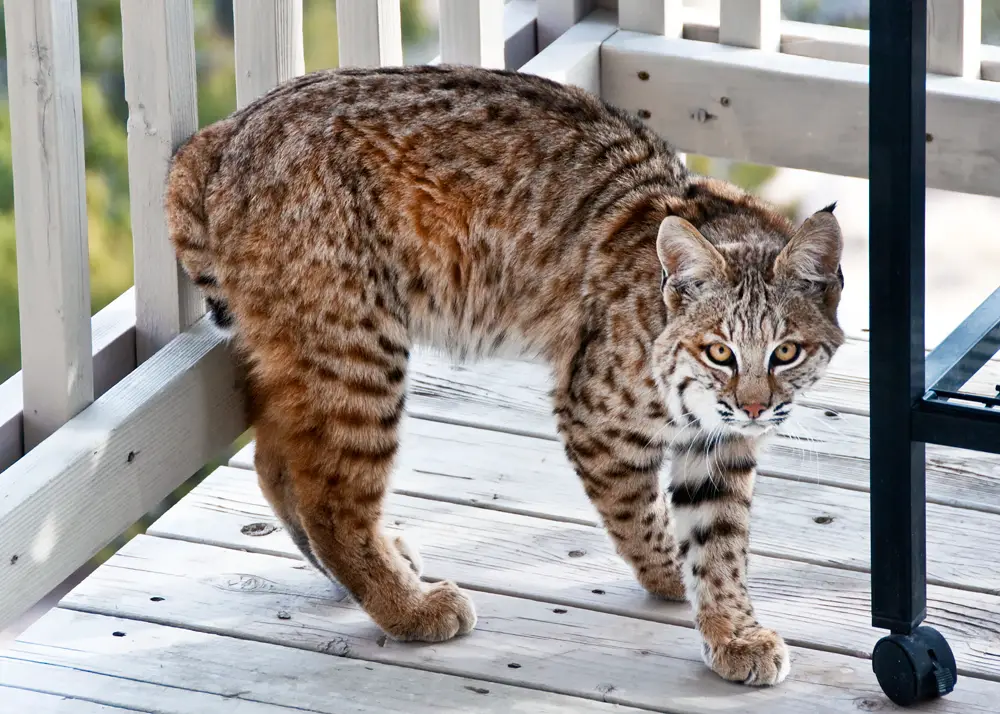
Michigan’s Department of Natural Resources got tired of rescuing bobcats from backyards and introduced regulations in 2024 banning private ownership of all felids larger than a domestic housecat. The rationale was simple: if a 50-pound wildcat breaks out in Detroit’s suburbs, it’s not purr-fect for your neighbors or your car’s hood. Alongside felids, the state quietly added large constrictors and venomous snakes to its banned list, because a family barbecue doesn’t need a side of python constriction demonstration. Prospective owners must now pass a written test on animal behavior, secure a bond of up to $10,000, and install enclosure cameras monitored by state officials.
That’s why this entry makes the list: Michigan decided that logging books and free fishing licenses were not enough to keep people from adopting a pet panther. Wildlife rescue groups noticed the law’s impact within weeks as calls for exotic rehoming skyrocketed—shelters went from “plenty of space” to “OMG please help.” Pet shops that used to stock baby boas pivoted to selling ferret starters and hamster habitat kits instead, because sometimes business models must evolve. Critics complained it hampered responsible conservation-focused breeders, but lawmakers argued that if you’re breeding bobcats, maybe a wildlife sanctuary is more fitting than a living room. In addition to bans, Michigan launched a public awareness campaign in local schools, reminding students that owning an opossum is one thing, but owning an ocelot is a felony.
10. Pennsylvania’s “No More Lemur Lunacy” Law

Pennsylvania lawmakers hit pause on the exotic pet craze when a viral TikTok showed a pet ocelot lounging on a couch in Scranton, prompting Senate Bill 2025 to ban all non-indigenous wildlife. Under the new law, any critter that isn’t a dog, cat, or a domesticated version of a farm animal is off-limits, because the Keystone State prefers cheesesteaks over cheetahs. Animal enthusiasts now need liability insurance, a veterinary clearance, and proof of a reinforced enclosure before bringing home anything with venomous fangs or prehensile tails.
That requirement was added because last year’s backyard escapade involving a in a pink tutu ended with a lemur-themed traffic accident. The crackdown’s core purpose is to safeguard livestock and public safety—no one wants an exotic pet stampede interrupting their Eagles tailgate. Enforcement officers can inspect properties without a warrant if they suspect non-compliance, transforming dream homes into surprise “American Ninja Warrior” obstacle courses for critters. Breeders had to either rebrand as educational sanctuaries or find new homes for hundreds of exotic animals they once housed, creating a mini-relocation crisis. Some rural counties roll their eyes, saying “Why mess with tradition?” since nostalgia for taxidermy-era menageries lingers in some older communities. Still, Pennsylvanians thinking of adopting a kinkajou in 2025 are out of luck unless they’re okay with hefty fines and social media shaming.
11. Colorado’s “Wildlife, Not Your Sidekick” Act
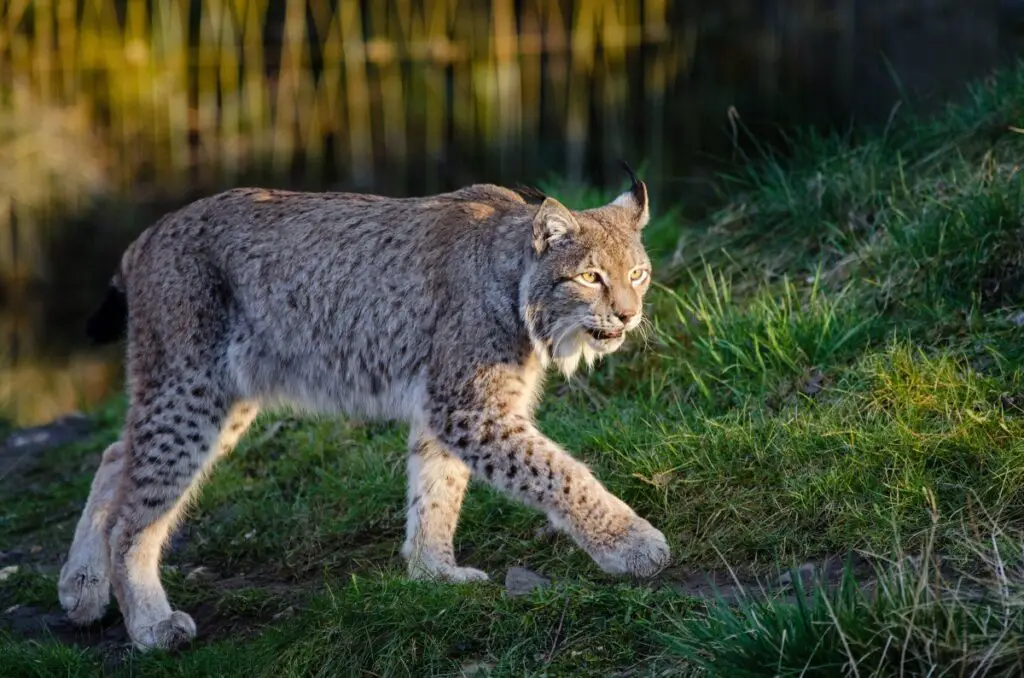
Colorado became the latest state to abandon its “if you can capture it, you can pet it” mentality by passing House Bill 2024 in mid-2025, outlawing all big cat ownership. This came after a viral livestream showed a pet cougar chasing deer in a suburban backyard—turns out, cougars aren’t great at playing fetch. The new rules also include wolves, bears, and primates, because living next to a pet chimpanzee can lead to awkward HOA meetings when your neighbor wants banana-peel slip ‘n slides. Residents are now required to surrender any newly listed exotic within 30 days or face penalties that include felony charges for repeat offenders. The reason Colorado added these species is that Rocky Mountain wildlife officials were tired of chasing escaped exotics in their pristine wilderness areas.
Wildlife sanctuaries saw an influx of surrendered exotics, transforming their cute Instagram galleries into “please adopt me” emergency appeals. The bill also created a grant program for non-profits to help rehome these animals, because “no critter left behind” became a real slogan in Denver arcades. Critics lament that this will hurt ethical exotic breeders, but supporters argue that ensuring public safety and ecosystem health outweighs breeding king cobras in your basement. State veterinarians are now mandated to inspect any licensed facility annually, ensuring that no one’s hiding a pet fox in their fireplace mantel. Enforcement teams also host “Exotic Amnesty Day” events, where owners can drop off critters anonymously—like recycling, but with carnivorous mammals. In the end, Colorado’s bold move proves that when your neighbors start complaining about a pet bear crashing your BBQ, it’s time to tighten the leash on exotics.
